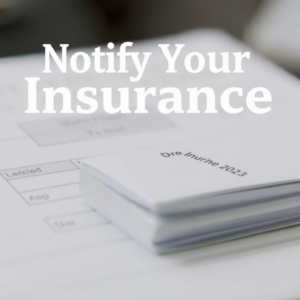Having a house fire is one of the most devastating things that can happen to a homeowner. It provokes countless questions regarding the future among these is what happens to your mortgage if your house burns down. Losing a home does not eliminate a mortgage, and the financial and legal obligations that follow can be rather confusing. But this blog is going to explore the roles of insurance and lenders, options like rebuilding or selling the fire-damaged house, and so forth. This blog will unravel the complexities and provide actionable insights to help you make informed decisions during a difficult time.
The Relationship Between Your Mortgage and Insurance
If you’re wondering what happens to your mortgage if your house burns down, the short answer is that the debt doesn’t go away. Once you borrow that money from a mortgage lender, it becomes an interested party in your home because the property is more or less used as collateral. Most lenders require you to insure your property to protect the investments.
If your house is destroyed by fire your homeowner’s insurance policy is designed to cover the cost of repairs or replacement — up to your coverage limits. The first recipient of that payout isn’t you—it’s your mortgage lender. The lender uses the insurance funds to protect their financial stake before the rest of your money is distributed to you.
Typically, this process happens as follows:
- If the insurance proceeds exactly match the entire amount of the loan, the lender will use the funds accordingly. Instead of other uses, the money will be applied to pay off the mortgage.
- If the funds are insufficient, you’ll still be responsible for any remaining mortgage debt.
What to Do Right After a Fire
Now that the fire has been extinguished, and the most imminent danger is gone, manage your mortgage and insurance with these next steps.

- Notify Your Insurance Company: Apply for Claims without delay. Give details on what has happened. Take photos of the damaged items and prepare an inventory list of personal items lost.
- Contact Your Mortgage Lender: Inform your lender about the fire, as they’ll need to coordinate with your insurance provider regarding the claim.
- Secure Temporary Living Arrangements: Coverage for loss of use is part of many homeowners insurance policies and pays for temporary housing and household expenses while the home is being repaired or rebuilt.
These first few steps become very important in the maze made of money with mortgages and collecting from fire damage.
Mortgage Payments After a Fire
Many homeowners mistakenly believe they can stop making mortgage payments after their house has burned down. Unfortunately, that’s not the case. If your mortgage is not completely paid off with insurance funds you are still obligated to meet your monthly payments.
If continuing to pay your mortgage on a home you can’t live in feels overwhelming, here are some potential strategies to consider:
- Request Loan Forbearance: Some lenders may offer temporary mortgage payment suspensions to homeowners recovering from disasters.
- Explore Loan Modifications: If your finances have been hit hard you should discuss with your lender possible modifications to help you make payments more manageable.
- Apply for Disaster Assistance: Programs like FEMA or community relief organizations can provide supplemental support to cover short-term housing or repairs.
These options can ease the burden of paying off a mortgage while simultaneously dealing with fire-related costs.
Insurance Payouts and Rebuilding
Insurance plays a vital role in determining what happens to your mortgage if your house burns down. The total amount of insurance payout received will determine whether you can rebuild. If rebuilding isn’t an option, you may have to consider alternatives such as selling the damaged property.
Coverage Types That Matter:
- Dwelling Coverage: The main section of your policy covers the cost of reconstruction of the structure of your home. Its value is generally set according to the replacement cost of your home. This value includes a few hundred dollars into the thousands.
- Personal Property Coverage: This helps replace your belongings lost in the fire.
- Loss of Use Coverage: It provides coverage for extra living expenses that you might incur. These expenses can include hotel costs and food while the home is uninhabitable.
Should you choose to rebuild, your lender will likely maintain the insurance check in an escrow account. They will supervise the release of the money as repairs are made. Such disbursement will ensure the funds are strictly expended on rebuilding the home.
Experiencing a house fire is one of the most challenging situations a homeowner can face. Understanding what happens to your mortgage if your house burns down is key to moving forward with confidence.. Keep in mind, your mortgage is still your responsibility, even after a fire. However, with the right support and resources, you can regain control, rebuild your home, and restore stability for yourself and your family.
Previous